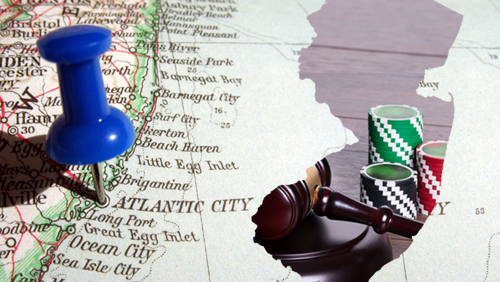A resolution that would authorize casino gaming outside Atlantic City is moving forward in the New Jersey Legislature.
The New Jersey Assembly’s judiciary committee voted 6-2 on Monday to approve the resolution, which would let the voters decide in November whether to authorize two new casinos in the northern part of the state. The referendum would amend the state Constitution to permit casino gambling outside of Atlantic City.
 This is despite the fact that key details, including the tax rate the new casinos would pay, are still missing. The amendment also didn’t specify the locations of the new casinos, but said that they must be at least 72 miles away from Atlantic City and be in separate counties.
This is despite the fact that key details, including the tax rate the new casinos would pay, are still missing. The amendment also didn’t specify the locations of the new casinos, but said that they must be at least 72 miles away from Atlantic City and be in separate counties.
Assemblyman Chris Brown, who voted against the bill, said that the referendum shouldn’t be held until the tax rate the new casinos will pay on their gambling revenue is specified. Brown also noted that, according to Deutsche Bank’s estimate, Atlantic City could lose $500 million in gaming revenue if there are North Jersey casinos, offsetting any revenue gains from the new casinos.
“If we’re supposed to have an intelligent debate and an intelligent conversation about amending the constitution, why wouldn’t we be honest with people and tell then what the tax rate is going to be so they know exactly what they’re voting on?” Brown said.
Speaker Vincent Prieto, one of sponsors of the bill, said the tax rate will be included in the enabling legislation before voters decide on new casinos in November.
The bill sets a minimum $1 billion investment in each new casino. It also gives Atlantic City casino operators just 60 days to apply for one of the two new licenses. After that, any company could apply for a license.
The resolution cleared its first legislative hurdle last month after the Senate Budget and Appropriations Committee voted 9-2 to approve the proposal. After a 20-day waiting period, the amendment must now pass both the Senate and Assembly with three-fifths majorities to be placed on the November 2016 ballot.